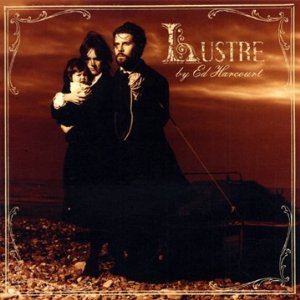Recently, while gorging on a picnic with a cricket jumper tied around my shoulders waiting for Rufus Wainwright to play a delightful set at Kenwood House (I’m not saying it’s posh there, but white people pick up your litter) I was subjected to a support act so jaw-droppingly bereft of imagination that I nearly choked on a mouthful of Eton mess. Though his name conjures the image of a Scottish hardman from an 80s TV detective series, Fyfe Dangerfield was sadly nothing of the sort. We might have been in a field, but his demeanor was one of timidity, not danger. His voice was thin, his ideas thinner and so outmoded were his songs that when he turned around one expected to see a vestigial tail. It may sound hard to believe, but when he unleashed his chart-bothering Billy Joel cover ‘Always A Woman’ on the lawnful of indifferent audience members before him, it put his own material to shame.
Dangerfield is a prime specimen of that rightly maligned (on this website at least) breed of mumsy, self-indulgent, boring and worthy musicians known as the singer songwriter. Ed Harcourt, on the other hand, is an artist who has suffered thanks to the mediocrity of these lesser mortals. He has unjustly been lumped in with the Fyfe Dangerfields of this world by people too dismissive or too busy to investigate further. And whereas the likes of Dylan, Cohen and Waits seem to operate with impunity even when their material is lackluster, Ed Harcourt has lustre in spades. He also has talent, ideas and songwriting skills that often soar to majestic heights. While nothing on his new record quite reaches the supreme powers of ‘Shadow Boxing’ or ‘You Only Call Me When You’re Drunk’ from his last studio album for Heavenly, The Beautiful Lie, Lustre is still a collection of beautifully constructed songs that merit veneration. The title track is effortless in its fluidity, and like many great songs it sounds as if it was always there, as does the hooky piano riff on ‘Heart of a Wolf’. And the lilting, reflective ‘Killed By the Morning Sun’ and the waltzy ‘Fears of a Father’ are heartbreaking and poetic in a way much lesser artists will never reach in their glossy, jewel-cased, unit-shifting, ephemeral careers.
On ‘Lachrymosity’, Harcourt’s frustration at being overlooked while insipid imitations are embraced seemingly universally spills forth. "They assume that sorrow is nigh on obligatory," he laments, "don’t get me wrong it all sounds quite pretty". Though never given quite the recognition he might have warranted, Harcourt was lucky enough to emerge at a time when EMI handed out five album deals, and the labels’ hope was surely that Harcourt would write a song that captivated generic minds and took him onto Top of the Pops and ultimately flogged cars or flat-Pack furniture. Although his ‘Lady in Red’ moment might never have arrived and Lustre sees Harcourt firmly in independent territory, this is an artist who’s skill, charm and integrity remains entirely intact. Fyfe Dangerfield and his ilk will never be able to claim the same.


